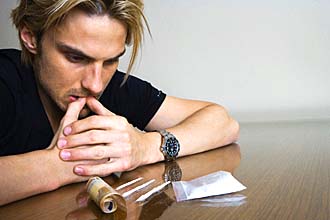The Reality Of Cocaine Addiction In The City Of London

When many people hear the word cocaine, they thought of the drug of choice for many people in the 1970s through the early part of the 1990s. In reality, cocaine addiction in the City of London, including the areas around London Bridge and Bermondsey and Southwark, is still considered a very real issue when it comes to substance abuse treatment.
It is estimated that cocaine use, as with other drugs, is steadily on the rise throughout London and surrounding areas, with the supply and demand factors reducing the street price of the drug, resulting in a more diverse group of first-time users. With both cocaine and crack cocaine readily available in all areas of London, including around London Bridge, addiction recovery services are more important than ever.

Cocaine is a street drug, but it is also a drug used by virtually all people across all socio-economic levels. In 2014, it was reported that about one in three adults in the United Kingdom used illegal substances, and about 40% of those reporting use were considered to be business professionals, leaders in communities, and people of considerable wealth and status.
Of those reporting drug use, including cocaine, almost one quarter reported daily use, and another 15% reported weekly use. Cocaine was ranked as the third most commonly used drugs, with approximately 29% of those surveyed indicating drug use reporting the use of cocaine. The only two illegal drugs more commonly used were amphetamines at 34% and marijuana at 93%.
Interestingly enough, in a survey completed by Online Research, and reported in The Guardian, 28% of all surveyed, including those not reporting any drug use, indicated they would consider taking cocaine. This number is second only to those reporting they would consider using marijuana.
That same survey also asked participants to rank the drugs they believed to be the most dangerous to use. It comes as no surprise that out of 12 drugs, marijuana was indicated to be the least dangerous. Crack cocaine was actually ranked as the second most dangerous, with heroin as the first and cocaine as the fourth.
For many people seeking help with a cocaine addiction becomes more than just a desire to change an addiction. It can also be a serious health issue, and with even one use it can trigger changes in the body. Some of the most common health conditions seen with this type of addiction, even with infrequent use, include:
It is possible for death to occur with cocaine use, often from complications of the cardiovascular system and the respiratory system.
At our offices located near the London Bridge area, as well as our offices on Harley Street and our Mayfair location, we work with clients struggling with cocaine addiction. Philippe Jacquet & Associates provides highly bespoke treatment and recovery programs using a holistic approach for each of our clients.
Many of the clients with long-term cocaine use and addiction have experienced significant changes in the chemistry of the brain. Cocaine is a stimulant, increasing the levels of the neurotransmitter dopamine in the brain and causing the euphoria associated with the use of the drug.
With use, this brain chemistry change also prevents the reabsorption of the excess dopamine, resulting in the need to use more and more to obtain the same level of euphoria.
Common changes in personality with a cocaine addiction include:
Combining cocaine with other drugs, or using in combination with alcohol, can increase both the physical risks of drug abuse as well as the mental health complications. It is also a leading cause of death by overdose.
Seeking treatment at our offices in London, including our office in the London Bridge area, allows you to have the therapy, support and expertise to overcome the addiction and learn new, effective coping skills. Recovery from cocaine use is possible, and we can help.
